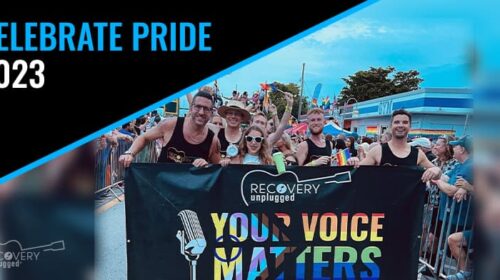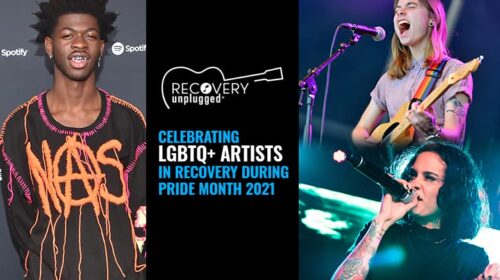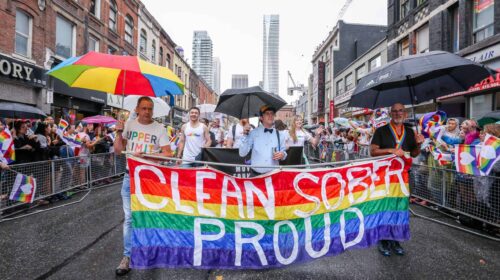The LGBTQ+ community is at consistently higher risk for alcohol and drug addiction than the heterosexual population, but only a fraction of treatment centers offer specialized LGBTQ+ addiction rehab. Many factors contribute to this disparity that can inform care approaches and increase treatment access.
Social stigmas can be among the most powerful drivers of SUD in the LGBTQ+ community. Alienation from family, workplace discrimination, fear for safety, and widespread prejudice can make it very difficult to maneuver through everyday life. The toll this takes on mental health can lead to self-medication with alcohol or other drugs.
Lack of Support and Identity Issues
It is important as social beings that we feel connected to a community, and that we’re supported by those closest to us. Constantly feeling as though there’s something inherently wrong with you – when there’s not – is a difficult and undeserved burden to overcome, and it is often expressed by family and supposed friends. Not all people are understanding of individual differences in sexual and gender expression, and this can lead to problems like bullying – which can occur at any age.
Often, someone who is perceived as “different” is rejected by their family, friends, and loved ones, leading to feelings of isolation and despair. According to Planned Parenthood, gender identity forms as early as between two and three years of age, with other data from Pew Research Center indicating that the median age at which an individual reveals their sexual and/or gender identity is during the middle school years at a time at which bullying – and experimenting with substances-is common.
The Association Between Depression and Addiction
This sense of alienation, shame, and consistent abuse can lead to juvenile depression that can cross over into adulthood, and lead to alcohol or drug use. According to the Center for Disease Control (CDC), transgender, lesbian, bisexual, and gay individuals are more likely than the general population to engage in excessive drug and alcohol use, have increased rates of substance abuse, and continue to drink excessively later on in life.
Studies support the assertion that those who identify as lesbian, gay, bisexual, transgender, and other non-heterosexual orientations are at an increased risk of suffering from substance abuse disorder. The association between substance use and depression is well-established. According to recent data, 60.5 percent of individuals with depression also had a substance use disorder; as compared to 39.5 percent of those who didn’t. Feelings of rejection, alienation, loneliness, suppressing one’s true self, and being traumatized by emotional, physical, and sexual abuse are just some of the causes that can lead to depression. Many individuals choose to use harmful and addictive substances as a way to feel better. This behavior, when it becomes a pattern and interferes with daily living such as work and relationships, results in addiction.
Why do Some People Self-Medicate?
Self-medication is defined as the use of alcohol and/or narcotics as a means to treat symptoms of a certain condition. This may seem like a solution, but it doesn’t address the source of your emotional or physical pain. Eventually, this leads to problems with physical health, emotional wellness, and quality of life. People who aren’t familiar with healthy coping skills may develop substance use disorder if they don’t seek out the help they need. Utilizing healthy coping skills such as meditation, grounding techniques, attending support groups, and creating art in any form are just some examples of ways in which to bring yourself to a mentality that is healthier and less conducive to developing substance abuse disorder. Healthcare options may be limited, leading someone to seek out other ways to treat their medical issues.
Barriers to LGBTQ+ Drug Rehab
Reaching out for help is commendable but sometimes despite our best efforts, we’re unable to receive the medical care that’s required. Many governmental laws – both local and federal – can make it difficult to find affordable healthcare options and well-informed providers. Additionally, LGBTQ+ individuals may be turned away by doctors and other medical professionals and can be denied coverage by their insurance companies. There is no federal law that prohibits such discrimination, making it difficult to pursue legal action. Mental health treatment, substance abuse programs, and hormone therapy are just some examples of the healthcare disparities faced by lesbians, gay, transexual, bisexual, questioning, and queer individuals. When searching for a provider, it’s important to inquire about their experience with individuals with whom you identify and to be sure care is affordable and/or covered by your health insurance company.
LGBTQ+ Drug Rehab at Recovery Unplugged
Recovery Unplugged is fully mindful of the unique issues that members of the LGBTQ+ community face in everyday life and how these stressors can lead to substance use. We are both sympathetic and empathetic to the specific trauma that this population experiences, and are here to provide sensitive, compassionate, and effective evidence-based care. We are also aware of the disparity in access to treatment faced by this community and are in-network with most major insurances companies to help make treatment more affordable and accessible. Contact our admissions staff to start your treatment at one of our multiple locations across the country.

























